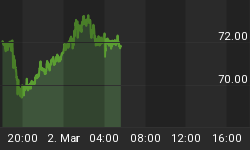A lot has changed since then-presidential candidate Trump quipped in 2015 to the Republican Jewish Coalition: “I don’t want your money, I’m self-funding my campaign … You're not gonna support me because I don't want your money. You want to control your politicians, that's fine. Five months ago, I was with you."
His remarks, clearly, were not welcomed by the audience and his comments led to accusations of anti-Semitism and provided fuel for the “Never Trump” movement within the Republican Party. Members of the coalition attacked Trump at the time for not being sufficiently supportive of Israel.
However, much has changed since taking office. The biggest sign was last year’s decision to relocate the U.S. Embassy from Tel Aviv to Jerusalem and to recognize Jerusalem as the capital of Israel.
Previous presidents, including Bill Clinton and George W. Bush, had promised to do the same, but never did. Since then, Israel’s capital city has reportedly become papered with conservative-funded posters praising Trump, and those Republicans who used to criticize him, are now celebrating his policies (at least on this front).
Last week, Minnesota congresswoman and House Foreign Affairs Committee member Ilhan Omar tweeted that pro-Israeli money was affecting the decisions of members of Congress.
She was swiftly rebuked by the party leadership, and of course, Republicans, prompting her to apologize. Omar’s comment gained particularly because she is naturalized U.S. citizen from Somalia and now one of the two first Muslim women in Congress.
But does she have a point? $22 million says she just might.
Related: Markets Inch Lower As Investors Remain Cautious
According to the Center for Responsive Politics research, data shows that pro-Israeli lobbyists funneled more than $22 million into the 2018 U.S. election cycle alone.
That number makes the lobby far more active and influential than those aligned with other foreign nations. At this spending level, the pro-Israeli lobby is far more active than the Political Action Committees (PACs) aligned with other nations.
After Israel, the next biggest spender in 2018 was the US-Cuba Democracy PAC, with approximately $171,000 in campaign contributions in 2018.
Data shows that Democrats who demanded an apology from Omar received some of the highest levels of contributions from the pro-Israeli lobby.
Eliot Engel, the chairman of the House Foreign Affairs Committee who accused Omar of invoking an “anti-Semitic trope”, received $1.07 million from the Israel lobby during his career. Lee Zeldin, who called Omar's tweet “sick & twisted” has received nearly $330,000 from pro-Israel groups, according to the data.
In fact, the Israel lobby donates to the majority of politicians, spending money on the campaigns of 269 House representatives and 57 senators last year.
Dan Auble, a senior researcher at CRP, told the Guardian that it is also highly likely that there’s far more pro-Israel lobby money flowing into American politics than is tracked. Dark money nonprofits aren’t required to disclose their donors.
But that doesn’t mean that Omar was without support in her statement, even from some Jewish groups.
Related: Hackers Tap Into The U.S. Electric Grid
Executive Director of Jewish Voice for Peace, Rebecca Vilkomerson, said that “lobbies influence politics, I don’t think that’s controversial to say.”
Former Obama official Brandon Friedman wrote on social media that “It's not anti-Semitic to accurately describe something that is completely obvious about the Israeli lobby”.
But let’s not dilute this cocktail of influence too much: The pro-whatever country lobbies are nothing compared to the industry lobbies.
According to the Center for Responsive Politics data, the securities and investment lobby contributed $389 million in 2018, while the real estate industry spent $186 million. The oil and gas lobby spent $124 million on lobbying.
The total amount spent by pharma companies on their U.S. lobbying in 2018 exceeded $280 million, while in the past two decades, drug makers have spent more than $4 billion lobbying the U.S. Congress.
By Charles Benavidez for Safehaven.com
















